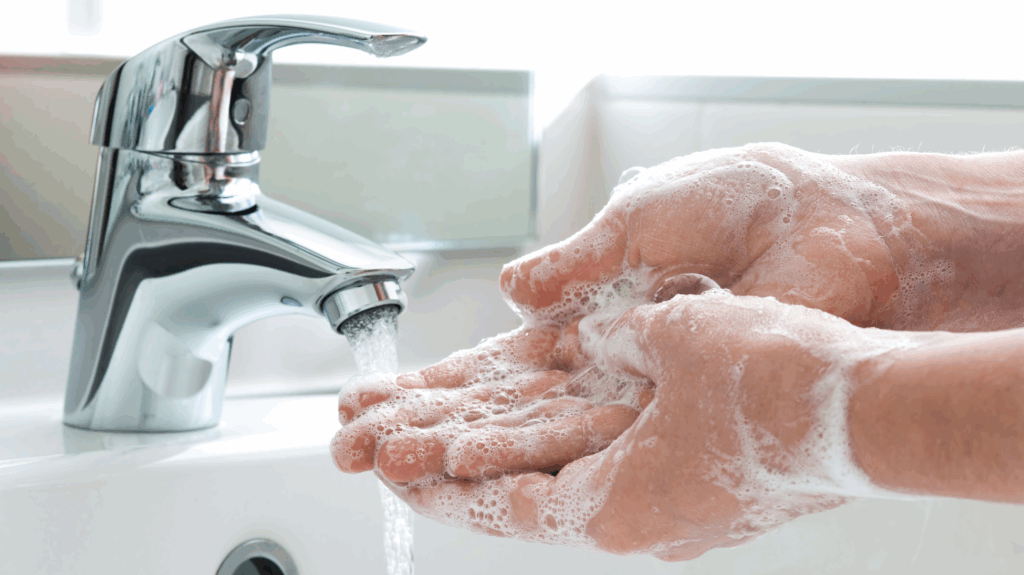
Hand hygiene is a simple yet powerful practice that involves cleaning your hands to remove dirt, germs, and harmful microorganisms. It includes washing hands with soap and water or using hand sanitizers that contain at least 60% alcohol. Though it may seem like a basic routine, proper hand hygiene plays a crucial role in preventing the spread of infection and maintaining overall health.
Understanding Hand Hygiene
Hand hygiene refers to all measures to clean hands and keep them free from contaminants. The most common methods include:
- Washing hands with soap and water: This is the most effective way to physically remove dirt, viruses, and bacteria from the skin. The process requires scrubbing all surfaces of the hands—including the back of the hands, between fingers, and under the nails—for at least 20 seconds before rinsing.
- Using alcohol-based hand sanitizers: When soap and water are not available, hand sanitizers with at least 60% alcohol content are a good alternative. They work by killing many types of microbes quickly, but are less effective if hands are visibly dirty or greasy.
Why is Hand Hygiene So Important?
The importance of hand hygiene cannot be overstated.
Here are some key reasons why maintaining clean hands matters:
- Preventing the Spread of Infectious Diseases
Hands are one of the primary carriers of germs. Throughout the day, you touch various surfaces—doorknobs, phones, keyboards, and more—that may harbor bacteria, viruses, or fungi. When you touch your face, mouth, nose, or eyes with contaminated hands, these pathogens can enter your body and cause illnesses like colds, flu, or even more serious infections.
Regular hand hygiene breaks the chain of infection by removing these germs before they can spread to you or others. This is especially important in environments such as hospitals or clinics where healthcare providers work closely with patients, making hand hygiene essential for everyone involved.
- Protecting Vulnerable Populations
Certain groups of people—such as young children, the elderly, and individuals with weakened immune systems—are more vulnerable to infections. Practicing good hand hygiene helps protect these at-risk individuals from getting sick.
- Supporting Global Health
Hand hygiene is a cornerstone of public health efforts worldwide. It is one of the most cost-effective ways to prevent infectious diseases and reduce the burden on healthcare systems. During outbreaks, such as the COVID-19 pandemic, hand hygiene became a critical tool to slow down the spread of the virus and save lives.
- Preventing Antibiotic Resistance
When infections spread and are not controlled, they often require antibiotic treatment. Overuse and misuse of antibiotics contribute to antibiotic resistance—a serious global health threat where bacteria evolve to become immune to medications. By preventing infections in the first place through good hand hygiene, we reduce the need for antibiotics and help combat resistance.
When Should You Practice Hand Hygiene?
To maximize protection, hand hygiene should be performed at key moments, including:
- Before eating or preparing food
- After using the restroom
- After coughing, sneezing, or blowing your nose
- After touching garbage or dirty surfaces
- Before and after caring for someone who is sick
- After handling animals or animal waste
If you’re searching for health care providers near me, you’ll find that hand hygiene is always emphasized in their patient care protocols.
How to Practice Proper Hand Hygiene
For Handwashing:
- Wet your hands with clean, running water.
- Lather the soap and scrub your hands thoroughly for at least 20 seconds.
- Don’t forget to scrub the back of your hand, between your fingers, and under your nails.
- Rinse well under running water.
- Dry your hands with a clean towel or air dry.
For Using Hand Sanitizer:
- Apply a palmful of sanitizer.
- Rub your hands together, covering all surfaces until dry (about 20 seconds).
Hand hygiene is a simple, effective habit that saves lives. Whether you are visiting your primary health care provider or simply going about your daily routine, keeping your hands clean helps protect yourself, your loved ones, and your community from the spread of harmful infections. In a world where germs are everywhere, clean hands are your best defense.

If you’re unsure where to start or need help finding a blood test laboratory near me or qualified healthcare providers near me, Medical Case Management International (MCMI) can guide you. Whether you’re looking to schedule routine blood work or follow up on your results, MCMI connects you with a network of trusted healthcare professionals and laboratories—so you can take charge of your health with confidence.
Leave a comment
Sign in to post your comment or sign-up if you don't have any account.